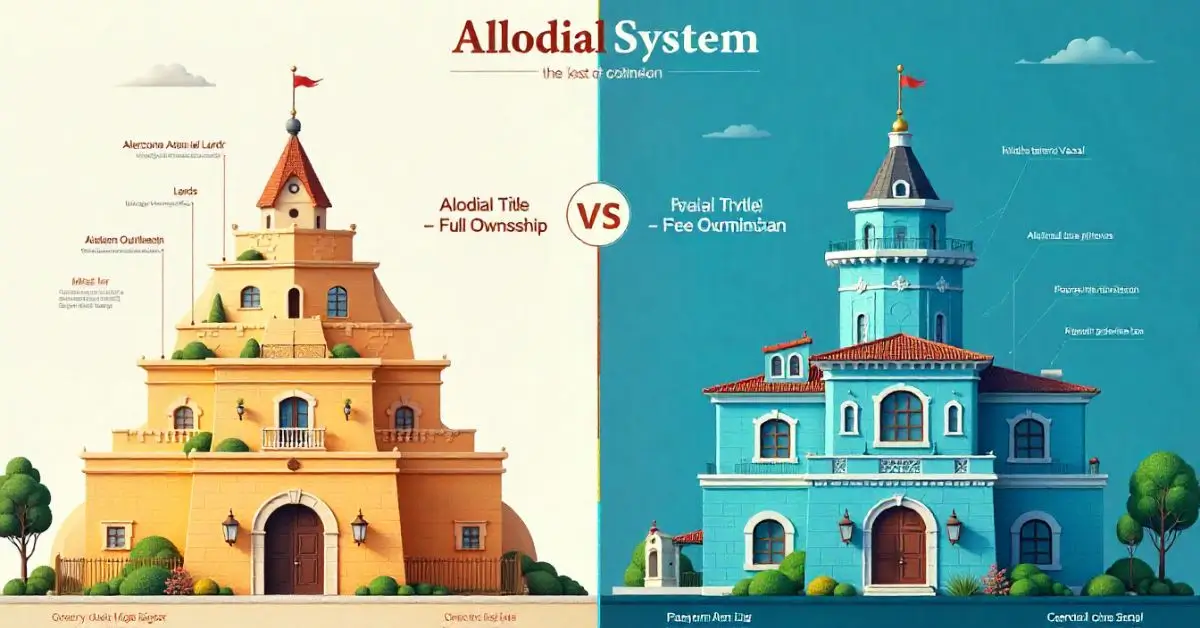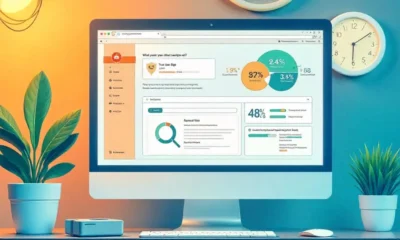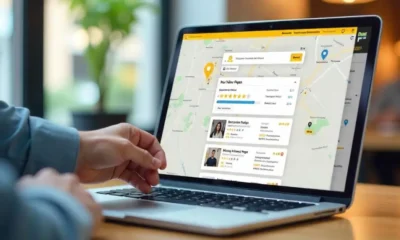BUSINESS
Irish Business Systems: Streamlining Success Across Ireland

Irish business systems deliver the backbone for streamlined operations, regulatory compliance, and long-term growth in Ireland’s dynamic economy. From local SMEs to global corporations, well-structured business systems help organizations operate with agility, reduce risk, and build trust. In this deep dive, we uncover how Irish business systems work, why they matter, and how you can implement world-class frameworks profitably and confidently.
What Are Irish Business Systems and Why They Matter
At their core, Irish business systems are cohesive sets of processes, technologies, and governance models that support daily operations—from finance to customer service. These systems foster:
-
Reliability: Standardized procedures reduce errors and build stakeholder confidence.
-
Compliance: Adhering to local and international regulations—such as GDPR and ISO—shields your operation from legal exposure.
-
Efficiency: Automated workflows free teams to focus on innovation, not repetitive tasks.
By embracing robust business systems, Irish companies reduce fear of failure, enhance reputation, and unlock new growth opportunities.
The Evolution of Irish Business Systems
From Manual Ledgers to Digital Platforms
Traditionally, Irish firms relied on paper records and siloed spreadsheets. However, technological adoption surged during the Celtic Tiger era, evolving:
-
ERP Systems: Integrated workflows for inventory, finance, and operations
-
CRM Tools: Centralized customer data improving responsiveness and sales conversion
-
Data Analytics: Informing smarter, evidence-based decisions
Adapting to Regulatory Needs
Regulatory drivers remain a key catalyst for strong systems. Ireland’s low corporate tax is offset by rigorous standards like GDPR, ISO certifications (e.g., ISO 9001 for quality, ISO 27001 for security), and evolving employment laws.
Cultural Influences & Networking
Ireland’s communal business culture values trust and collaboration—making systems that support transparency and relationship-building essential. These systems align with human-centric values that resonate emotionally and strategically.
Key Components of Modern Irish Business Systems
A successful system typically comprises:
-
Governance Framework: Clear roles, documentation, and escalation paths
-
Process Workflows: How tasks flow between people and systems
-
Technology Platform: ERP, CRM, business intelligence, and automation
-
Compliance Protocols: Built-in checks for GDPR, quality, security, etc.
-
Continuous Improvement: Ongoing evaluation and improvement through audits
The interplay of these components ensures systems are not just functional—but effective and adaptable.
Benefits of Investing in Irish Business Systems
-
Cost savings from streamlined resources and fewer errors
-
Improved scalability when entering new markets or launching new products
-
Stronger brand reputation with consistent service delivery
-
Enhanced competitiveness through data-driven agility
Comparing Irish Business System Features
| Feature | Cost | Efficiency | Ease of Use | Scalability | Benefits |
|---|---|---|---|---|---|
| Governance | Moderate-high | High | Medium | High | Reduces risk |
| ERP Systems | High | Very High | Medium | High | Automates cross-departmental tasks |
| CRM Tools | Medium | High | High | High | Boosts customer loyalty |
| Compliance | Medium | Medium | Medium | Medium | Ensures legal security |
| BI & Analytics | Medium-high | High | Medium | High | Informs strategic decisions |
This table highlights how strong Irish business systems offer trade-offs between investment and long-term payoff.
Best Practices to Build Your Irish Business System
1. Audit Existing Processes
Map your current workflows and identify bottlenecks. Understand pain points and regulatory gaps before investing.
2. Start Small, Scale Fast
Begin with a foundational system—such as Finance+CRM—then expand to ERP/BI once early success builds confidence.
3. Engage the Team
Involve frontline staff to foster buy-in, address fears, and minimize resistance. Their insights lead to better adoption and outcomes.
4. Focus on Compliance
Embed data protection, quality, and safety checks natively. This helps avoid punitive penalties and reputational harm.
5. Drive Continuous Improvement
Use KPIs, audits, and feedback loops to keep systems evolving—not stagnant.
Overcoming Challenges Head-On
Systems install anxiety fueled by:
-
Fear of hidden costs: Emphasize ROI and start with scalable solutions.
-
Resistance to change: Use champions and transparent communication.
-
Regulatory complexity: Simplify by adopting internationally recognized standards like ISO and GDPR frameworks.
Real-World Applications in Ireland
From Cork-based manufacturers to Dublin tech startups, Irish business systems span industries:
-
Technology: Startups using cloud-based systems to scale globally
-
Pharma & healthcare: Firms managing stringent supply chain and data compliance
-
Retail & hospitality: SMEs optimizing inventory and customer loyalty
-
Financial services: Banks deploying risk, audit, and data-driven systems
Each sector reaps tailored benefits from investing in systems that align operational discipline with culture and ambition.
Why Irish Firms Are Accelerating Adoption
-
Global positioning: ISO-certified systems ease multinational partnerships
-
Economic resilience: Systems prepared firms to adapt swiftly to crises
-
Talent dynamics: Digital-savvy workers expect modern tools and clear processes
This progress shows systems not only enhance efficiency but protect against emotional and strategic uncertainty.
Choosing Your Irish Business Systems Provider
Key evaluation criteria include:
-
Experience in Irish market
-
Support for local regulations
-
Strong user training & onboarding
-
Integration with your existing tech stack
-
Scalable pricing models
Take demos, reference peer organizations, and demand proof of concept before signing.
Future-Proofing with Emerging Trends
Stay ahead by embracing:
-
AI-enhanced analytics for predictive insights
-
Process automation like AI-powered workflows and chatbots
-
Cloud-first infrastructure ensuring agility and remote access
-
Integrated compliance systems that proactively monitor and alert
Each innovation helps Irish business systems grow smarter, safer, and more human-focused.
Implementing Irish Business Systems: A Step-by-Step Guide
-
Discovery: Audit processes and stakeholder input
-
Planning: Define goals, KPIs, and roadmap
-
Piloting: Choose a department for trial
-
Rollout: Train teams and deploy incrementally
-
Review: Measure KPIs, gather feedback, revise
-
Expand: Scale system across the organization
By following this structured rollout, fear is mitigated through transparency and validation of results.
Measuring Success in Irish Business Systems
Track performance through:
-
Reduction in process cycle times
-
Cost savings from error reduction
-
Regulatory audit pass rates
-
Employee satisfaction scores
-
Growth in revenue, customer retention, scalability metrics
Quantifiable proof of success builds trust and drives further investment.
Conclusion
Irish business systems deliver the structure, clarity, and resilience no organization can afford to ignore. By embedding robust processes, modern technology, and regulatory rigor, businesses boost efficiency—and reduce the anxiety of uncertainty. Whether you’re launching a startup or scaling a multinational in Dublin, investing in polished business systems empowers sustainable success.
FAQs
What is an Irish business system?
An Irish business system is a defined framework combining processes, tools, and governance tailored to Irish regulatory and cultural contexts that drive operational reliability and growth.
How much do business systems cost in Ireland?
Costs vary—basic CRM setups start affordably, while comprehensive ERP and analytics suites require larger investments. However, ROI often recoups the spend within 12–24 months.
Can small Irish businesses implement these systems?
Absolutely. Many vendors offer scalable cloud solutions so small firms can adopt core systems first and expand as they grow.
How do these systems improve compliance?
They embed GDPR, ISO, and financial checks directly into daily workflows, reducing the risk of violations and simplifying audit preparation.
What’s the typical implementation timeline?
A phased approach might take 3–6 months for initial modules, with full deployment rolling out over 12–18 months depending on complexity and readiness.
How can I ensure staff adopt new systems?
Prioritize early engagement, clear communication about benefits, hands-on training, and visible leadership support to build confidence and reduce resistance.
BUSINESS
Why Dot Business Cards Are a Game-Changer in 2025

Dot business card is a smart business card embedded with NFC (Near Field Communication) technology or a QR code. With a quick tap or scan, it instantly shares your contact information, portfolio, social media profiles, or even a custom landing page.
Here’s how it works:
- Tap the card on a smartphone, or scan the QR code
- Your contact card opens in the phone’s browser
- The recipient can save your info instantly—no app required
It’s fast, paperless, and makes a lasting impression.
“Digital business cards like Dot are the future of networking. They save time, reduce waste, and create real value in a virtual-first world.” — Forbes
Why Entrepreneurs and Professionals Are Switching to Dot
1. Efficiency That Speaks Volumes
Forget fumbling around for cards at a networking event. With Dot:
- You tap, they save
- No printing costs
- Always up-to-date
2. Perfect for Freelancers & Consultants
When your portfolio is your pitch, Dot makes it effortless to:
- Share work samples on the spot
- Direct clients to your booking page
- Add credibility with a branded digital presence
3. Sales Teams Love It
Sales reps, SDRs, and BDRs benefit from:
- Seamless lead capture
- Integration with CRMs
- Immediate follow-up options
According to HubSpot, teams using digital tools for contact sharing saw a 38% improvement in lead engagement.
4. Branding for Marketing Pros & Event Staff
Stand out with custom logos, colors, and calls-to-action. Dot turns your card into a mini-marketing machine.
5. Perfect for Tech-Savvy and Eco-Friendly Users
If you care about reducing waste and staying ahead of the curve:
- One Dot card replaces thousands of paper cards
- You can update info anytime without reprinting
TechCrunch calls the Dot NFC card “A game-changer in sustainable, smart networking.”
NFC Business Card vs QR Code Business Card: Which Is Better?
| Feature | NFC Card | QR Code Card |
|---|---|---|
| Tap to share | ✓ | ✗ |
| Scan with camera | ✗ | ✓ |
| App required | No | No |
| Works on all phones | Most | All |
| Speed | Instant | Slight delay |
| Professional appeal | High | Moderate |
In short: NFC offers a sleeker, more modern user experience. But QR code functionality ensures universal access.
Dot vs Popl vs Linq — Which Digital Business Card Is Better?
All three are solid options, but Dot stands out in:
- Simplicity: No subscriptions needed
- Design: Sleek, minimal, brand-friendly
- Customization: Personalized URL, custom profiles, and analytics
For professionals who want a balance of style, speed, and substance, Dot leads the pack.
How to Create a Digital Business Card with Dot NFC
- Order a Dot card from the official site
- Create your profile: Add links, bios, photos, booking tools, etc.
- Activate your card: Tap it to your phone and link it to your profile
- Start sharing: Anytime, anywhere, no app needed
Benefits of Using a Contactless Business Card at Networking Events
- Reduces friction during busy conversations
- Makes you memorable with high-tech flair
- Easy follow-ups via saved contact details
- Boosts your professional image instantly
Real-World Scenarios Where Dot Shines
- At trade shows when you’re meeting dozens of people in minutes
- During a client pitch when you want to share your portfolio instantly
- After speaking on stage to share your info with the crowd
- At casual meetups where pulling out a card feels too formal
Final Thoughts:
In today’s fast-moving world, making connections that count is everything. Whether you’re a founder, freelancer, or field rep, a Dot business card helps you show up smarter, faster, and more impressively.
It’s not just a card. It’s your digital handshake.
FAQ’s:
Are Dot business cards worth it for small business owners?
Absolutely. You make a one-time investment, and it eliminates printing costs, adds branding power, and supports real-time updates.
How do I update my Dot business card contact info?
Simply log into your Dot dashboard, update your profile, and changes reflect immediately. No new card needed.
How to share your LinkedIn with a Dot card?
Just add your LinkedIn link to your Dot profile. When someone taps your card, they can go straight to your LinkedIn page.
People Also Ask (PAA) Section
What is a digital identity card?
A digital identity card holds your personal or professional information in a secure, shareable format—like Dot. It makes connecting faster and easier.
Can Dot business cards be used by teams?
Yes, Dot offers multi-user plans for teams and corporate accounts. Ideal for consistent branding across sales or marketing departments.
Is the Dot business card app-free?
Yes! You and your recipients don’t need to download an app. Everything works through mobile browsers.
Are digital business cards eco-friendly?
Yes. By reducing or eliminating paper waste, Dot cards are a great eco-friendly business card option for sustainable-minded professionals.
Author Bio:
Written by Awais Nazir, a digital content specialist with 5+ years of experience writing SEO-optimized articles for tech and business blogs. Awais holds a degree in Media & Communications and specializes in emerging tech tools for professionals.
Free Download: Networking Toolkit for 2025
Want to make the most of your smart business card? Grab our free checklist: “10 Ways to Network Smarter with Digital Tools”. Perfect for events, client meetings, and cold outreach.
BUSINESS
How to Use Business Car Finance to Grow Your Brand

If you’re running a small or medium-sized business, managing a startup, overseeing a fleet, or handling finances for a professional service, every expense counts — and vehicle acquisition is no exception. Whether you’re looking to expand your operations, replace aging fleet vehicles, or simply free up working capital, business car finance offers strategic flexibility without the upfront financial burden.
With rising vehicle costs and tighter budgets in 2025, business owners are seeking smarter ways to access transport solutions. In this guide, we break down how business vehicle finance works, its benefits, pitfalls, and how to make the best choice for your company—backed by expert insights and practical tools.
What Is Business Car Finance and How Does It Work?
Business car finance is a financing option that enables businesses to purchase or lease vehicles for commercial use. Unlike personal car loans, these are structured with business operations in mind and can include tax benefits, flexible terms, and fleet options.
Common Types of Business Car Finance
| Finance Option | Description |
|---|---|
| Business Auto Loans | Standard loan where the company owns the car outright after repayment. |
| Company Car Leasing | Fixed-term lease with the option to buy, return, or upgrade. |
| Fleet Vehicle Financing | Designed for multiple vehicle purchases, often with volume discounts. |
| Hire Purchase (HP) | Ownership transfers after all payments and fees are cleared. |
| Operating Lease | Similar to a rental; no ownership at end, often used to keep vehicles off the balance sheet. |
Who Should Consider Business Car Finance?
This financing method is ideal for:
- Small to Medium Business Owners (SMBs) looking to improve cash flow.
- Fleet Managers needing cost-effective vehicle rotation strategies.
- Startups seeking vehicles without large capital outlays.
- Self-employed professionals who use cars for business activities.
- Financial Decision Makers optimizing tax and operational costs.
Pros and Cons of Financing a Car Through Your Business
Benefits
- Preserve capital for other investments.
- Tax-deductible car finance: Lease payments and interest may be deductible (consult your accountant).
- Access to newer models for improved reliability and image.
- Flexible lease terms for scaling operations.
Drawbacks
- Mileage restrictions on some leases.
- Early termination fees if you change your plan.
- Potential depreciation costs if you buy instead of lease.
Source: U.S. Small Business Administration, NerdWallet Business Auto Loans
Business Car Finance vs Personal Car Finance
| Feature | Business Car Finance | Personal Car Finance |
|---|---|---|
| Ownership | Company or leasing firm | Individual |
| Tax Deductions | Available | Limited |
| Credit Impact | Business credit score | Personal credit score |
| Usage | Business-related | Personal use |
Tip: Using a vehicle 100% for business makes it easier to claim tax-deductible expenses. Hybrid use complicates deductions and may raise audit risks.
Expert Tips on Choosing the Right Business Vehicle Finance
1. Evaluate Total Cost of Ownership (TCO)
Include maintenance, insurance, fuel, and depreciation—not just monthly payments.
2. Use a Business Car Loan Calculator
Estimate payments and compare different loan types. Tools like Bankrate’s Auto Loan Calculator are excellent for scenario planning.
3. Consult Your Accountant
Get accountant-approved business car loan strategies that align with your tax situation and cash flow needs.
4. Compare Lenders
Look at both traditional banks and online lenders for the best business auto loan interest rates.
Best Business Car Finance Companies in 2025
| Provider | Best For | Notes |
|---|---|---|
| Ally Bank | Flexible terms | Great for fleet financing |
| Capital One | New businesses | Streamlined online process |
| Wells Fargo | Large loan amounts | Competitive rates |
Local Options: Business Vehicle Finance in [Your City/Country]
Search for “top-rated car finance for businesses in [Your Location]” to find region-specific lenders and lease providers. Local banks may offer better terms for registered businesses in your area.
Apply for Commercial Car Finance Online
Today, many platforms allow you to apply for business vehicle loans online with minimal documentation. Look for options offering:
- Same-day pre-approval
- Business credit evaluation
- Custom quotes for vehicle financing for self-employed professionals
Real-World Case Study
“As a marketing agency owner in Austin, I needed two branded vehicles but didn’t want to tie up our capital. We used a fleet vehicle financing solution through Ally Bank and saw immediate ROI through brand visibility and delivery speed.”
— Sara M., SMB owner, Austin, TX
Final Thoughts
Choosing the right business car finance solution can help you maintain liquidity, scale efficiently, and stay compliant with tax regulations. Whether you’re a startup founder, fleet manager, or self-employed consultant, there’s a smart path forward—if you do the homework, compare wisely, and consult with experts.
FAQ’s:
1. What is business car finance and how does it work?
It allows businesses to lease or purchase vehicles using business credit or capital, offering tax and cash flow advantages.
2. Is business car leasing tax-deductible?
Yes. Lease payments and operating costs are generally deductible if the vehicle is used solely for business. Check with a tax advisor.
3. What’s better: business car finance vs personal car finance?
Business finance protects personal credit and provides tax benefits, but only if the vehicle is strictly for work use.
4. How can I find the cheapest business car lease deals in the UK or US?
Compare quotes online and look for seasonal promotions or manufacturer-backed leasing programs.
5. Where can I find a business car loan calculator for small businesses?
Try NerdWallet, Bankrate, or your local bank’s website for free tools.
Need help finding the best fit? Speak to your financial advisor or accountant, and always read the fine print.
BUSINESS
Allodial System Real Estate: A Complete Guide for Sovereignty-Seeking Property Owners (2025)

In a world where property taxes, government liens, and legal red tape dominate traditional homeownership, the allodial system offers a radically different framework. Rooted in ancient landholding traditions, allodial title refers to owning real estate free and clear of any superior landlord—including the government.
Unlike fee simple ownership (the most common form of property ownership in the U.S.), allodial title provides absolute ownership—with no property taxes, mortgages, or governmental claims.
Who Is Interested in Allodial Real Estate?
The allodial system is especially appealing to:
- Off-grid enthusiasts and homesteaders
- Liberty-minded investors seeking property sovereignty
- Moderate to high-tech savvy adults, aged 28–65
- Residents of Nevada, Texas, Arizona, and New Mexico
- Canadians and Australians exploring alternative property law systems
This demographic actively engages in real estate platforms, legal forums like AVVO, YouTube channels such as LegalEagle or Sovereign Living, and DIY legal solutions to navigate complex land rights.
Understanding Allodial Title vs. Fee Simple
What Is Fee Simple Ownership?
Most homeowners in the U.S. own their property under fee simple, which provides a high degree of ownership—but with conditions. You still owe:
- Property taxes
- Compliance with zoning laws
- Potential eminent domain seizures
Allodial Title Explained
With allodial title, none of these apply. The property is owned entirely and independently of external authority.
Key characteristics include:
- No ongoing tax obligation
- Immune from foreclosure due to unpaid taxes
- Not subject to eminent domain
However, true allodial title is extremely rare in modern legal systems.
Can You Actually Own Allodial Title in the U.S.?
This is where things get nuanced. While allodial title exists in theory, its application in the U.S. is highly limited.
State-Level Exceptions
- Nevada: Once allowed conversion of homes into allodial title by paying a large fee; this program ended in the early 2000s.
- Texas & New Mexico: Some historical precedents and off-grid communities cite allodial principles, but legal systems default to fee simple.
- Arizona: While off-grid living is popular, true allodial title is not recognized under state law.
What Experts Say
According to real estate law expert David Reiss, J.D., Professor at Brooklyn Law School:
“Allodial title in its purest form no longer exists under U.S. law. Most claims of it are symbolic or aspirational rather than enforceable.”
(Source: National Law Review, 2024)
Similarly, Attorney Clint Coons of Anderson Business Advisors warns:
“Be cautious of anyone selling allodial title services. It’s often misrepresented or even fraudulent.”
(Source: Anderson Advisors YouTube, 2024)
Is Allodial Ownership Possible in Canada or Australia?
In both countries, Crown Land ownership dominates the legal landscape. That means the state technically retains ultimate ownership, though individuals may enjoy long-term leaseholds or fee simple rights.
- In Canada, land is held under the Crown, making allodial title legally impossible.
- In Australia, land tenure systems also recognize government supremacy, although Indigenous communities have fought for more autonomous land rights.
“Australia’s system is based on Torrens Title, which does not recognize allodial title.”
— Dr. Nicole Graham, University of Sydney, Property Law Faculty
(Source: Journal of Environmental Law and Policy, 2023)
Why the Allodial System Still Matters
Even if true allodial title is rare, the philosophy behind it is powerful. It aligns with:
- Minimal taxation
- Off-grid autonomy
- Government skepticism
- Private land trust structures
- Decentralized ownership models
Some property owners use land trusts, private contracts, and asset protection strategies to emulate the benefits of allodial title.
Practical Tips: How to Maximize Property Sovereignty Legally
If you can’t own your land allodially, here’s how to get as close as possible:
1. Use a Land Trust
Place your property in a revocable land trust to:
- Keep ownership private
- Shield property from public record
- Potentially reduce estate taxes
2. Pay Off All Debts and Taxes
A debt-free, tax-paid property gives you maximum control—if not true sovereignty, then at least freedom from liens.
3. Live in Unincorporated Areas
In counties without strict zoning or code enforcement, you can:
- Avoid building permits
- Install off-grid utilities
- Reduce interactions with bureaucracies
4. Understand Legal Limits
Don’t fall for scams. Validate every claim with:
- Your county recorder
- Licensed real estate attorneys
- State land management offices
Final Thoughts: Allodial Isn’t Dead—But It’s Rare
While allodial system real estate has deep historical roots and continues to inspire liberty-minded landowners, most practical applications today are symbolic or limited. Still, understanding the concept can empower property buyers to make smarter, sovereignty-focused decisions.
Invest in education, legal structure, and strategic land purchases to build your version of modern land independence.
FAQ’s:
Q1: Can I still obtain allodial title in Nevada?
No. The program was discontinued in the early 2000s. No new applications are being accepted.
Q2: Is allodial title the same as fee simple?
No. Allodial title is superior, with no obligations to a sovereign power. Fee simple is subject to taxation and regulations.
Q3: Are there any modern equivalents of allodial ownership?
Yes—land trusts, homestead exemptions, and off-grid zoning offer partial benefits.
Q4: What should I be cautious of?
Avoid services promising to “convert your property to allodial title” without state-recognized legal support. These are often scams.
Q5: Where can I learn more?
Check out:
- National Law Review – Property Law Section
- Anderson Advisors YouTube Channel
- NOLO Legal Encyclopedia on Property Ownership
-

 TECH5 months ago
TECH5 months agoOnionPlay Safe to Use in 2025? | Safer Alternatives, Privacy Tips & VPN Picks
-

 TECH5 months ago
TECH5 months agoDooflix App for PC: Best Ways to Use It on Windows 10/11
-

 TECH5 months ago
TECH5 months agoIs Scrolller Safe? A 2025 Guide to NSFW Browsing with Confidence
-

 BLOG6 months ago
BLOG6 months agoMedihoney: The Natural Healing Power Revolutionizing Wound Care
-

 TECH5 months ago
TECH5 months agoIs F95 Safe? A Complete 2025 Guide for Privacy-Conscious NSFW Gamers
-

 BUSINESS6 months ago
BUSINESS6 months agoBloomberg Billionaires Index: Unveiling the Wealthiest Lives
-

 BUSINESS6 months ago
BUSINESS6 months agoHuns Yellow Pages: The Ultimate Business Directory for Local Searches
-

 EDUCATION5 months ago
EDUCATION5 months agoAnna’s Archive: The People’s Open Library in a Digital Age
